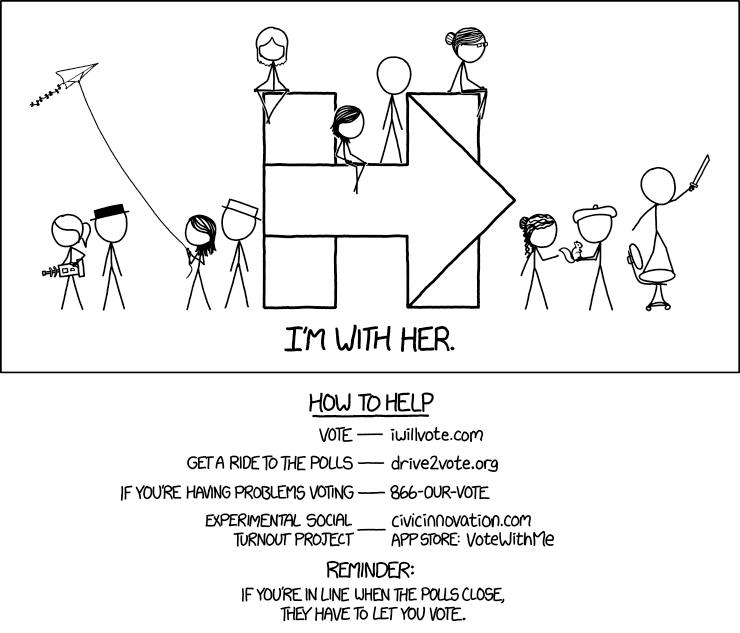[Quick caveat: I haven't had a chance to read Chait's longer piece in the recent issue of New York Magazine which could very well undercut some of my criticisms.]
Jonathan Chait is one of the very few journalists to emerge from this campaign with his reputation enhanced and there are a lot of real insights in this post from earlier in the week (
How Donald Trump Outsmarted George Will), but his central is wrong in a subtle but fundamental way.
The point is not at all to gloat at the failure of anti-Trump conservatives, but to explain the source of their error. You can’t heal an illness you’ve diagnosed improperly. Anti-Trump conservatives deluded themselves about the source of conservatism’s electoral appeal. Trump’s long list of deviations from party orthodoxy — on health care, abortion, support for the Clintons — would have destroyed a normal candidacy, the way Rick Perry’s support for humane treatment of undocumented immigrants killed his candidacy in 2012.
…
The most important analytical failure of the anti-Trump conservatives is their blindness to the centrality of white racial backlash. They simply cannot imagine how movement conservatism could result in bigoted authoritarianism, and their confusion produces absurdity. Erick Erickson, the conservative pundit who has fiercely opposed Trump, today defends Rush Limbaugh, even though Limbaugh is defending the candidate. Erickson argues that Limbaugh’s brand of conservatism is exactly what the party needed all along. “If Republicans lamenting Trump and hating on Rush had only listened to Rush and taken his counsel that he gives for free three hours a day, five days a week, the GOP would not be in this mess,” he reasons. Yes – Trump’s popularity clearly demonstrates that a racist, misogynist, conspiracy-mongering bully-entertainer has had too little influence.
...
The conservative intelligentsia is right about one thing. Trump is not a committed ideologue but a grifter who decided to use their voters for his own ends. Trump grasped from the outset that the birther issue gave him a connection to the Republican electorate. The conservative intelligentsia ignored the birthers, the freaks, and the transparent racists because they were embarrassing. It was far more flattering and heroic to imagine the whole thing was about the Constitution. The con artist swindled the perfect mark.
The anti-Trump conservatives weren't blindsided by the rise of these angry, bigoted voters; they were blindsided by their sudden inability to control those voters. The conservative movement went to great lengths to cultivate this segment of the electorate, feeding it a steady diet of misinformation, dog whistles and astroturf. The assumption (which proved sound for a long time) was that the more anger and fear you could stoke in this segment, the more you could count on their money and their votes.
This segment was not "ignored" because they were "embarrassing." They were kept at a distance in order to maintain plausible deniability. For example, by pursuing the endorsement of Donald Trump, Mitt Romney was able to court the birthers without actually associating himself with them. As for misreading the appeal of their agenda, Chait himself has often pointed out that the leaders of the conservative movement have rather openly admitted that their ideas do not have broad electoral appeal. Think of Romney's 47% comment or of any conversation you've had with an Ayn Rand acolyte.
For the record, Chait gets more right here then he does wrong, so why should we make a big deal out of this?
For starters, this narrative lets a lot of the anti-Trump conservatives off the hook far too easily. When proto-Trumpism was in a controllable and politically expedient form, very few of the conservative intelligentsia had any trouble with them. There's a fairly direct line from the redmeat, "real America" anti-intellectualism of Sarah Palin and the rise of Trump, but Bill Kristol was crazy about Palin. Even more to the point, Rush Limbaugh and Donald Trump are virtually interchangeable, but anti-Trump conservatives remarkably willing to work with Limbaugh.
But there is far more at stake here than simply assigning blame. We have recently seen an appalling level of racism and sexism and every other type of bigotry imaginable. Obviously, there are social, economic, and demographic factors at play, but they have been greatly exacerbated by a massive amount of propaganda. I would argue, if you had to pick a single cause for how bad things have gotten, that would be it.
The Republican base believes things like this...
... because this is what they've been told repeatedly through endless channels.
The media is filled with people willing to condemn the anger and the bigotry that Trump has brought to the surface, but if we're serious about these condemnations, we need to be looking at the people who have been cultivating Trumpism for decades.



